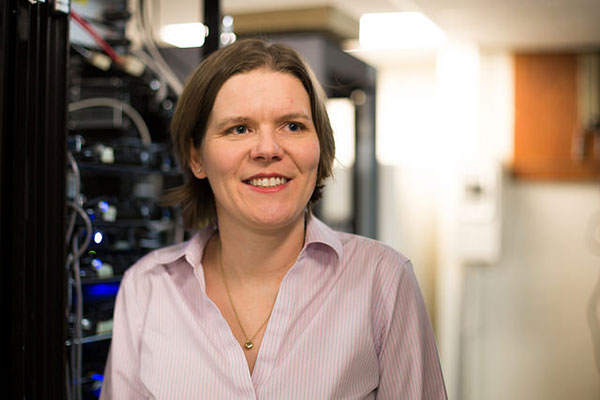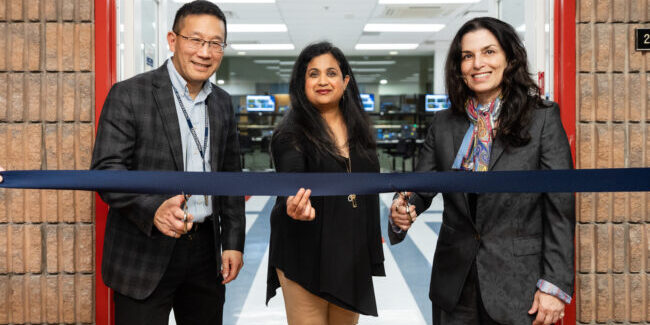When ECE Professor Natalie Enright Jerger received the Borg Early Career Award a few weeks ago, there was a certain sense of passing the torch. “I remember when my co-supervisor, Li-Shiuan Peh received this same award in 2007 when I was still a graduate student,” she said. “To have her turn around and nominate me meant a great deal.”
The award — conferred by the Committee on the Status of Women in Computing Research (CRA-W), part of the Computing Research Association — was presented June 16 at the International Symposium on Computer Architecture in Portland, Oregon. Named in honour of the computer science pioneer Anita Borg, the award recognizes Enright Jerger’s commitment to outreach, helping young women discover computer engineering and providing them with support to help them be successful in their studies.
“Outreach is really important to me because I wouldn’t have chosen or stayed in this career path if it wasn’t for the mentoring and outreach that I received,” said Enright Jerger. “I think it’s critically important to have someone you can relate to that has succeeded in your chosen field. You can look at them as say, ‘if they can do it, so can I!’”
Enright Jerger’s research in computer architecture focuses on designing new ways of arranging the components of computer processors in order to optimize performance. Her projects help manufacturers like Intel, AMD and Qualcomm build faster devices while keeping power usage, device weight and cost low. The result is smarter smartphones and more powerful computers for use in medicine, banking and many other fields.
During graduate school Enright Jerger became involved in a group known as wicarch (women in computer architecture). The group began as a way to solve a practical problem: helping female graduate students find other women to share hotel rooms with while attending conferences on computer architecture. Today, wicarch has expanded to offer pre-conference networking meetings, connecting women in computer science from around the world.
“We find that getting students plugged in to mentoring and networking early will help them be more successful,” said Enright Jerger, who remains one of wicarch’s key organizers. “If they’re struggling with their research topic, their supervisor, or just feeling isolated, they have people that they can email or call to connect with.”
In addition to her work with wicarch, Enright Jerger also gives talks to groups of high school students, especially women, to explain the value of engineering and the rewarding experiences she has had. She has also organized discipline-specific mentoring programs for CRA-W.
“Congratulations to Natalie — I am gratified to see her passion for outreach, as well as her leadership within her research community, recognized with the Borg Early Career Award,” said Professor Farid Najm, chair of The Edward S. Rogers Sr. Department of Electrical & Computer Engineering. “She sets an example to both established and aspiring engineers.”
Enright Jerger plans to continue her work engineering outreach. “I participate in these outreach activities because I know it’s important and because it feels good to help people, but it’s also nice when someone externally acknowledges that the work is important and meaningful,” she said.
With files from Marit Mitchell.




